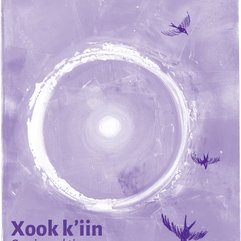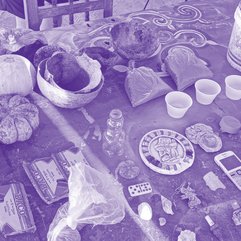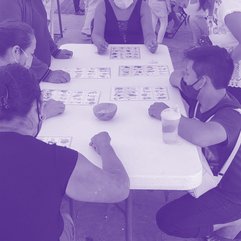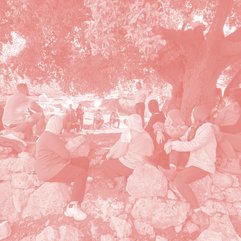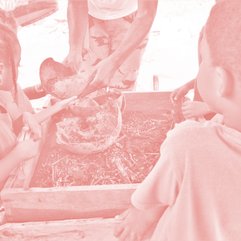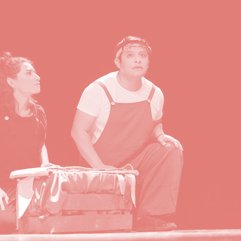Let’s talk about Haiti
A Cultural Day
10.00-18.00
Save the Date
all ages welcome
Haitian Creole/in German/in English/in French

Let’s talk about Haiti is a cultural day dedicated to Haiti (Ayiti in Creole) and the Haitian diaspora living in Germany. In addition to creating a space for exchange within the Haitian diaspora, the event will also provide information about the situation of the world’s first free Black republic.
Haiti is rarely mentioned in German news — and if it is, it's usually in the context of disasters and alarming headlines. That’s why we want to present a more nuanced image of this Caribbean nation and highlight the strength of its people, their stories, and their culture.
On the occasion of African Liberation Day, May 25th — a date that commemorates the struggles and victories of African nations in their fight for independence — we invite you to the Spore Initiative in Berlin. Haiti’s own revolutionary past inspired anti-colonial movements across Africa and the diaspora, and its history remains deeply relevant today. The program begins with an introductory talk on Haiti’s spatial development, followed by three parallel workshops. Afterwards, there will be a panel discussion, during which we will speak digitally with journalists and scholars from Haiti about the current situation on the ground. The day will conclude with an artistic performance. Throughout the day, there will be plenty of opportunities for exchange and networking.
Accompanying the program is the launch of the Diaspora Daydreams kiosk — a multimedia mini-museum on Haiti’s history and culture.
Let’s talk about Haiti is organized by:
Aïda Roumer, Carl-Henry Cadet, Marie-Alice Morel, Trovania Delille, and Yann Kersaint.
Program:
10 – 10:30 am
Bonjou, Bonjour, Welcome, Ankommen
10:45 am
Welcome by the Team
11 am – 12:30 pm
Talk and Q&A: The spatial Production of Haiti - Canaan an ordinary city in the Caribbean? by Dr.Yann Kersaint
The presentation offers an overview of Haiti’s historical spatial development — from the colonial era to the emergence of the Canaan settlement in the metropolitan region of Port-au-Prince after the earthquake of January 12, 2010. Canaan was originally a temporary camp for displaced people. Today, it is home to several hundred thousand residents. The presentation shows how centuries of exploitation of both people and natural resources contributed to this development. It highlights how the material production of space creates new places to live, but also reinforces existing vulnerabilities and challenges.
12:30 – 1:45 pm
Break
1:45 – 2 pm
Film: Kiskeya by Tatiana Mejía / with a short introduction by Tatianaa
Kiskeya is an interdisciplinary dance project by Tatiana Mejía uniting dominican and haitian artists to explore the cultural, social and political relationship between their respective countries.
2 – 3 pm
Workshops:
Haitian-Dominican relations: Border crossings between Ouanaminthe and Dajabón Border by Aïda Roumer (in German with possible translation to English)
A border of approximately 400 km separates Haiti and the Dominican Republic. The realities along this border reflect the multi-layered, sometimes conflictual relationships that influence life on the entire island. Using the border towns of Ouanaminthe and Dajabón as examples, these relationships are examined more closely and seemingly straightforward binaries are scrutinised.
Aid for Haiti: challenges and opportunities by Marie-Alice Morel (in German with possible translation to English)
The first part of the workshop will discuss the history of humanitarian aid, why Haiti is often called an „NGO Republic“ and particularly the scandals and challenges the nation faced in the aftermath of the earthquake 2010. Afterwards, we will consider how it is nevertheless possible to support Haiti sustainably and ethically, by exploring projects run by Haitians on the ground, and consider steps each of us can take to start fundraisers ourselves.
Around Haiti in 12 Tales by Carl-Henry Cadet (in French)
This workshop invites participants on a journey through Haitian literature. Haiti is both a geographical and symbolic space that has long inspired a rich, vibrant, and deeply creative literary tradition. In this workshop, we will explore 12 places across the country through the eyes of Haitian and foreign authors who are captivated by Haiti. Participants are encouraged to reflect on the significance of place in their own imagination and to create their own literary responses — using storytelling as a powerful tool to share their lives and express their truths.
3 – 3:15 pm
Coffee break
3:15 – 4:45 pm
Paneldiscussion: "Sak ap fet Ayiti" ( What is up with Haiti ?)
During the digital panel, we will be discussing the current situation in Haiti live with Jemima Pierre (tbc), Frantz Duval (LeNouvelliste), Rosy Auguste (RNDDH, tbc) and Gabrielle Apollon, speaking from Haiti and the USA.
5 – 5:15 pm
Artist Performance by Estelle Widmaier
5:15 – 6 pm
Ending





